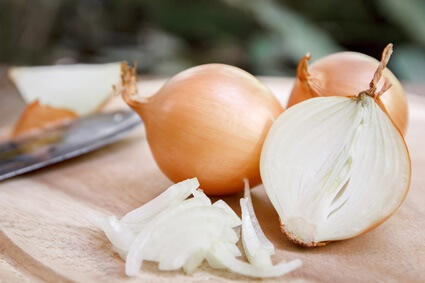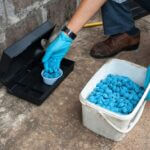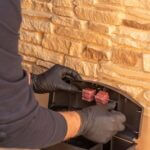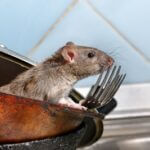If you have a rat problem, you may be considering using homemade pest control methods. Onions are sometimes used as an alternative to commercial rat poisons.
Some experts believe that onion causes hemolytic anemia in rats, which is a condition where the body loses brain cells faster than it can produce them.
There’s little scientific evidence on how onions affect rats. However, onions are extremely toxic to cats, dogs, and other animals.
Also, rats are known to be repelled by the smell of onions. At the very least, you can use uncooked onions as a rat repellent, even if you find that onion consumption doesn’t kill rats.
Are Onions Poisonous To Rats?
Uncooked onions are believed to be poisonous to rats.
Onions belong to the allium family, and all alliums contain a compound called N-propyl disulfide.
N-propyl disulfide damages hemoglobin, which is found in oxygen-carrying blood. This causes anemia, which is when the body lacks enough red blood cells. That can eventually cause death.
Rats have been known to eat cooked onions, which may provide a reason to doubt the claim that onions are toxic to rats. However, consider that the toxin present in onions is reduced significantly by cooking.
What Kind Of Onions Kill Rats?
The following onions contain a higher amount of N-propyl disulfide:
- Red onions
- White onions
- Yellow onions
Other members of the allium family, like scallions, contain these toxins but in smaller amounts. They may be able to kill rats, but a rat would need to eat much larger amounts.
If you use these onions, the amount you’ll need to reach the median lethal dose may far exceed how much the rat is willing to eat.
What Happens When Rats Eat Onions?
Unfortunately, there’s little research surrounding how onions affect rats.
However, among those who keep pet rats, it’s believed that rats should never be fed onions. While the reason is disputed, we can consider how onions are toxic to cats and dogs.
The substance in onions, N-propyl disulphide, binds with the oxygen in the blood. This causes hemoglobin, the carrier of oxygen molecules, to become damaged. Eventually, the body will consider these damaged cells to be invaders. The body will then break down these damaged cells.
When the body loses red blood cells faster than it can produce them, it results in anemia. Anemia means that the body cannot provide enough oxygen to various parts of the body.
When the body is starved of oxygen, the animal will experience:
- Internal organ damage
- Organ failure
- Death
Some symptoms an animal may exhibit include the following.
- Weakness
- Painting
- Increased heart rate
- Irregular heartbeat
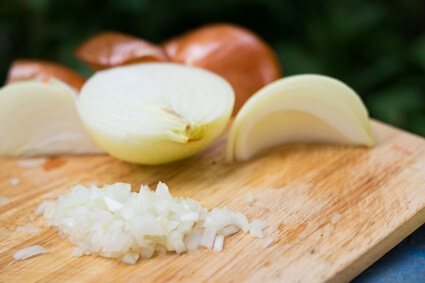
Do Rats Hate The Smell of Onions?
Rats are very sensitive and smart creatures, and they can often sniff out things that are poisonous to them. The same can be said for raw onions.
The compounds responsible for the onion’s toxic properties are also responsible for its strong smell. That’s why you won’t see rats going over to raw onions and eating them.
Rats hate the smell of uncooked onions, making them a good rat repellent. However, if you want to use raw onions as rat poisons, you’ll need to mask the smell and make them more enticing to rats.
How To Get Rid Of Rats Using Onions?
You can use onions as rat poison and as rat repellent. Here are methods you can try:
Poison
These techniques turn the onion into rat poison while hiding the scent so that it’s more appealing to rats.
Onions And Fried Meat
Onions have a strong smell, but the smell of meat is often stronger. It’s certainly a smell that is more enticing to rats.
This method requires you to mix fried meat with onions so that the onions are coated with the taste and smell of fried meat.
You’ll need the following:
- ¼ cup meat, cut into small chunks
- ¼ cup onions, minced
Fry the pieces of meat. Ensure that they end up juicy; do this by ensuring that the meat is marinated beforehand, cook it under low heat, and add oil if necessary.
As soon as the meat is cooked, add it to the bowl with the chopped onions.
Mix until the onions and meat are incorporated well. This will ensure that the juices from the meat coat the onions without cooking the onions themselves.
Place this mixture in an enclosed container. Seal any spaces near the bait so that rats won’t try to remove the food and bring it to other areas.
Onion Stew
This method relies on beef stew to incorporate the toxins found in the raw onion while hiding the onion’s scent. If rats keep running away with your onion bait, consider this method as an alternative.
You’ll need the following ingredients:
- ¼ cup onions, minced
- ½ cup beef stew
Prepare the beef stew. If prepared from scratch, ensure that the juices from the ingredients are extracted. You can ensure this by frying the ingredients in oil and boiling the ingredients under low heat for as long as possible. If using canned stew, heat the stew and ensure it’s hot to the touch.
Then, remove any big chunks. This will raise the chances of the rats eating the uncooked onions instead of any other ingredient in the stew.
While the stew is still hot, add in the minced onions. The onions must be minced to soak up the flavor of the stew and transfer its flavor to the stew’s liquid.
Repellent
These methods can help you drive off rats, ensuring certain portions of your home are off-limits. This can also drive the rats toward other poisons.
In A Bowl
The easiest method of using onions as a repellent is to place them in a bowl.
How you cut the onion isn’t important, as long as you cut the onion. You can dice, chop, or slice the onions into strips. As long as they are cut, they’ll release their scent.
Place the onions in a disposable plastic container. Set them up in your home’s entrances and exits.
Note that onions used this way can rot quickly, so replace the onions within days and check up on your onion repellent every day.
Onion Repellent Spray
An easier way to spread the smell of onions is by using a spray. This dilutes the smell of onions, so it may not be as effective as the previous method.
Do this by diffusing the onions in a bowl of hot water for about 15 minutes. Then, place the water inside a spray bottle. You can also add other ingredients known to repel rats, like bleach and peppermint.

